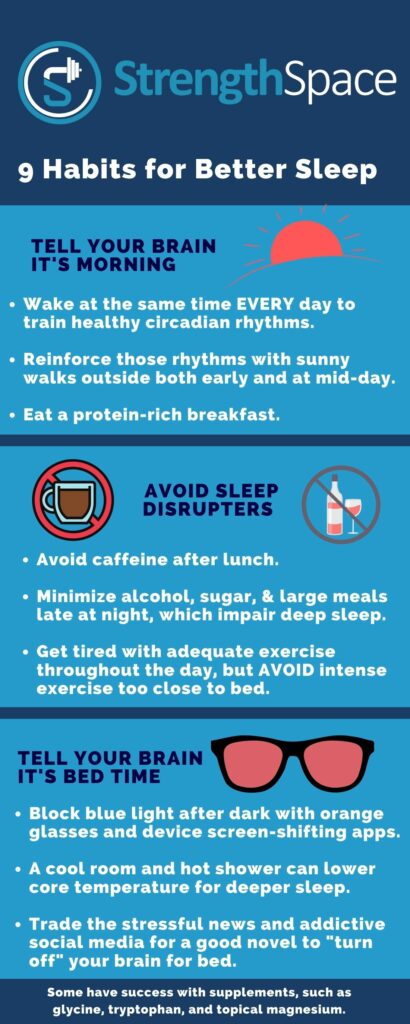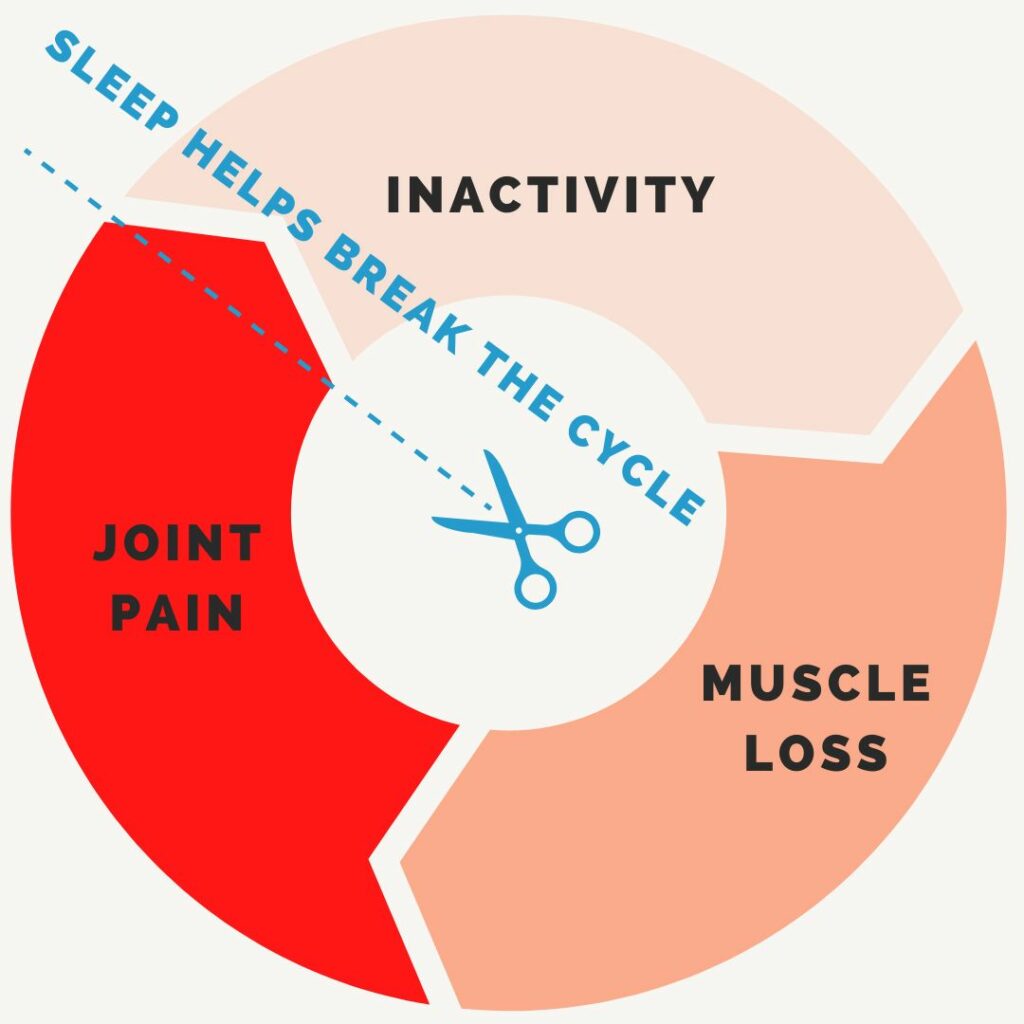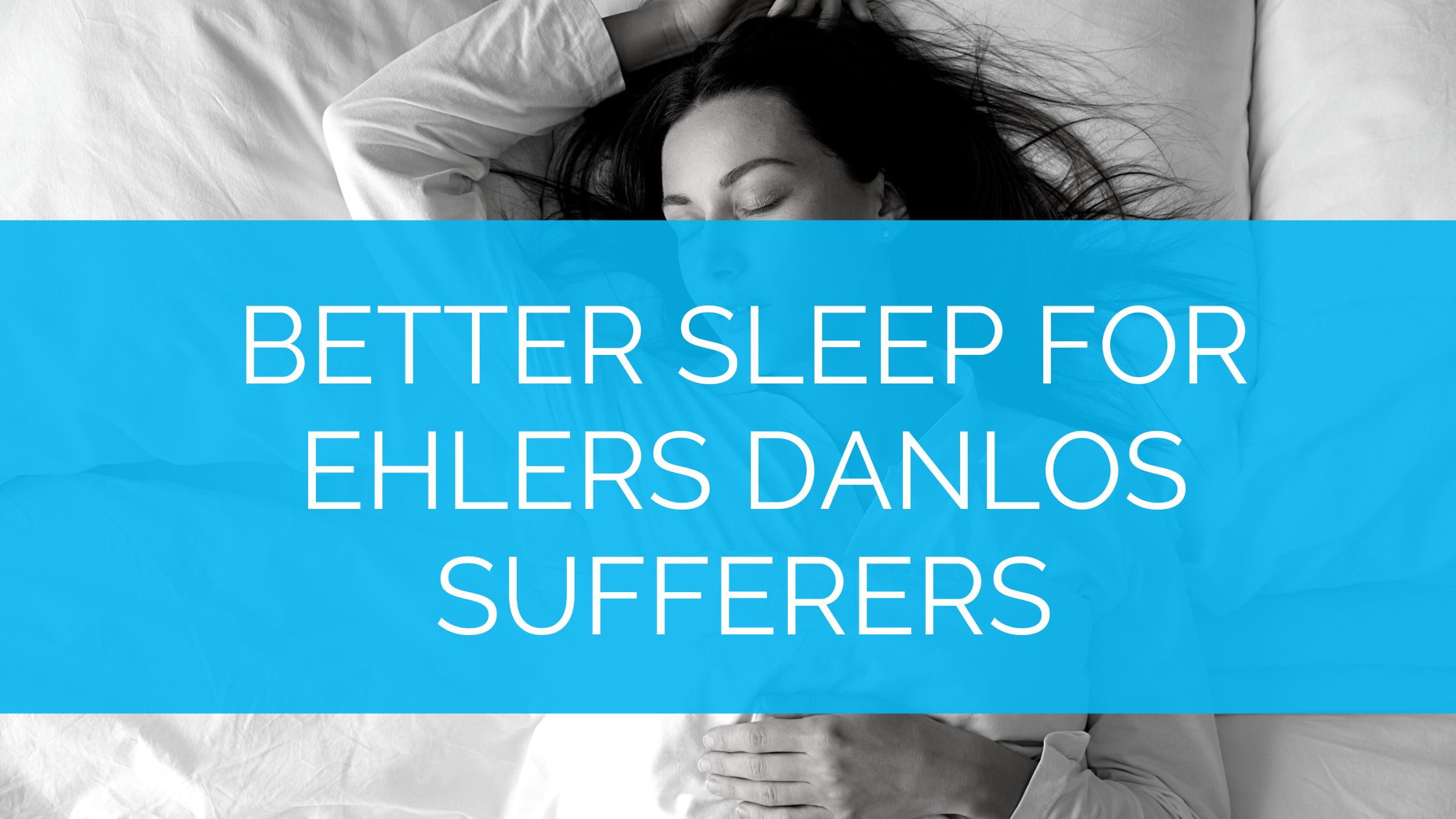If you are a human being, this article is for you. You don’t have to have any special condition to benefit from better sleep hygiene. All you need to be is a busy person hustling through a technology filled life. If that describes you, keep reading. However, if you are one of my many Chesapeake clients with a chronic pain or hypermobility condition like Ehlers Danlos, sleep is one of the most important things you should focus on immediately to enhance your recovery. Near the end of the article, I’ll focus more on Ehlers Danlos and sleep’s ability to improve your nervous system’s ability to control and protect your joints.
Why everyone can benefit from better sleep.
There are countless major review papers, popular science books, and interviews available on the subject of sleep and circadian rhythms, and proving every detail of that subject is beyond the scope of this article. I’m going to keep this brief and ask that you accept the following claims:
1. Sleep is critical for a healthy hormonal balance
Without adequate sleep, our metabolisms become badly dysregulated, leading to poor appetite control and weight management. People who get poor quality sleep have DOUBLE the risk of developing obesity!
“Circadian misalignment increases insulin resistance and decreases pancreatic function.”
2. Sleep is when we recover
Sleep deprivation actually blunts our ability to build muscle. So if we’re going to the trouble of exercising, we owe it to ourselves to sleep so we’ll actually build strength, muscle, and bone density.
3. Sleep is essential for brain health
While many mental health disorders can disrupt our sleep, working hard to prioritize our sleep may improve our cognitive function, reduce our risk of dementia, and enhance our mental wellbeing.
Once you have accepted that improving your sleep is going to help every aspect of your physical health, from your metabolic health, to managing your appetite, to your pain, to your recovery from exercise, you can begin to put the following steps into place every day to ensure a good night’s sleep.

Tell your brain it’s daytime.
To get your brain to “believe” it’s time for sleep, it must first know when it is time for wakefulness. The following behaviors during the morning hours will help “entrain” your brain’s circadian rhythms by establishing that it is day time.
Wake at the same time each day
Don’t jet lag yourself by sleeping in on weekends. Instead of “catching up” on sleep, you’ll just confuse your circadian rhythms. When it’s time for bed on Sunday night, you won’t be able to fall asleep on time, and you’ll go into the start of your week underslept. Going to bed at the same time each night will also help ensure you don’t skip a sleep cycle!
Start your day with a brisk morning walk
The red-dominant wavelengths of early morning sun may help set your brain to a wakefulness cycle that aligns with your life. By going on a brisk walk, you’ll also boost your blood-flow and send more “be awake” message to your brain.
A large, protein-rich breakfast reinforces our circadian pathways, particularly with respect to muscle mass function and preservation, blood sugars, and insulin sensitivity.
Avoid sleep disruptors
Avoid caffeine after lunch.
That afternoon espresso may be a pick me up, but if you’re a slow metabolizer of caffeine, you may find it affecting your ability to fall asleep, or achieve deep sleep, even 8-10 hours later!
Minimize alcohol, sugar, and late large meals.
It turns out the “Breakfast like a king, Dinner like a Pauper” axiom may have merit. Drinks, a huge dinner, and a sugary indulgent dessert may make you feel sleepy, but they’ll hurt your sleep quality.
Get adequate activity, but avoid intense exercise in the evening.
Increasing your activity with strength training, and getting more steps in, can help you get physically tired enough to fall and stay asleep. However, keep the intense exercise earlier in the day. Elevating your cortisol close to bed may leave you too wired up to achieve a deep sleep.
Then, tell your brain it’s Bed Time
Wear blue blocking glasses, even if they’re goofy looking!
Artificial (blue) light tricks your brain into thinking it’s day by reducing production of melatonin, and confusing your internal circadian clock. You could use only candles after dark, but that’s not very practical. The evening color filter on your phone is a good start, but wearing orange tinted glasses will also block the blue light coming from your kitchen and bathroom lights, so you can produce melatonin and fall into a deeper sleep.
Lower your core temperature to improve deep sleep!
Keep your thermostat close to 68 degrees. That’s chilly, but it’s easier to fall and stay asleep with a cooler core temperature. For an added (but counterintuitive) cooling effect, a hot shower or bath will increase blood flow to your skin, so you dump body heat faster in the cool air of your room.
Put down your phone and destress with a book.
Stop swiping! It’s too easy to consume media before bed that stresses us out. From political news that puts you in a rage, to social media posts that make you feel unaccomplished or inferior, these triggers can lead to anxiety and depression. Pick up a novel and “turn your brain off” with a good story instead.
Ehlers Danlos and Sleep
If the connection between Ehlers Danlos and Sleep isn’t obvious, let’s consider that folks with EDS are at increased risk of suffering from sleep-related conditions like hypersomnia. Many of these conditions are related to a disruption in circadian rhythms. What’s more, poor sleep can contribute to (and be exacerbated by) chronic pain conditions. This may be related to the effect sleep deprivation has on psychiatric conditions such as depression and anxiety, or because of sleep’s close relationship to physical recovery. The brain, after all, is a physical structure.
Sleep can improve motor control in Ehlers Danlos sufferers.
For your joints to enjoy optimal stability, your nervous system needs to produce muscle contractions that happen on time and in a coordinated manner. This is why safe strength training can be so beneficial for individuals with hypermobility disorders! By correctly absorbing forces and stabilizing joint position, your nervous system can reduce the loads your ligaments and joint capsules have to manage, but this ability is degraded when we are sleep deprived.
In fact, just one night of sleep deprivation has a significant negative impact on how our bodies coordinate simple tasks such as walking. Sleep quality and quantity also impact our postural control, or the ability of our nervous system to coordinate our muscles to help us maintain balance and position. If joint health and avoiding falls are concerns for you, improving your sleep with the tips provided above should be your top priority!

Sleep can also help Ehlers Danlos sufferers manage chronic joint pain
A crucial step in managing any orthopedic condition is in managing pain, and not letting pain prevent you from improving your health and fitness. Left unchecked, pain can lead to a vicious cycle of inactivity, which causes muscle loss and weakening, which can then lead to more joint instability and pain.
Poor sleep leads to increases in inflammation, physiological stress, and pain. Better sleep, by contrast, can help break this cycle by helping to manage pain and fatigue, so you can remain active enough to preserve your essential muscle mass.
Conclusion
It is my hope that no matter who you are, this article will motivate you to prioritize sleep. Whether your goal is to preserve your cognitive function, optimize your metabolic health, or better manage Ehlers Danlos related joint pain, the 9 tips in this article are a simple starting point for you to improve your sleep. Every personal training client at our Chesapeake, VA studio knows the importance of sleep for recovery and progress, and it’s my hope that you will internalize these ideas and start sleeping better to feel better today!


